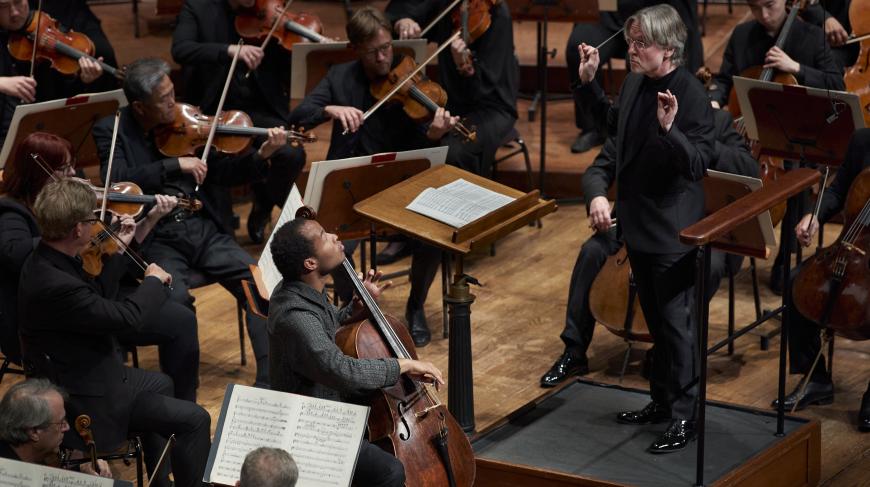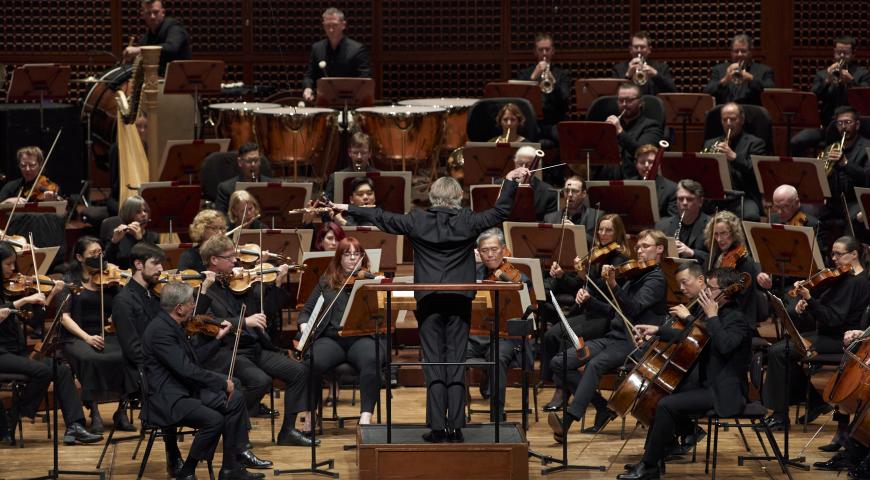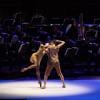
In descriptions of Dmitri Shostakovich’s music, that dreaded word “politics” tends to pop up. The composer wrote variously for himself and for the Soviet censors; you wonder sometimes whether a melody was meant to be sneering or sincere. It worked both ways in last week’s San Francisco Symphony program, which spanned a century of Russian music. Music Director Esa-Pekka Salonen conducted.
Even with the best orchestras, Shostakovich’s Cello Concerto No. 1 can sound mediated, as if the soloist is behind a scrim. But the six-minute unaccompanied cadenza offers a chance for the cellist to show who he really is, and in his SF Symphony debut, Sheku Kanneh-Mason seemed a conscientious, confident artist. The cellist, who rose to prominence after winning the BBC Young Musician competition in 2016, played this vital movement on Saturday just as softly and strictly as the composer instructed. The counterpoint seemed effortless, but its effect was devastating.
Unusually, the melodies of the cadenza come not from the first movement (biting in this performance, then tamed) but from the slow movement, the crux of the work. The Moderato starts as a chorale but splits off in expansive recitatives and interludes. At one point, Shostakovich sets the theme against thunderous figuration; balanced as elegantly as it was in this performance, the music seemed to belong to two worlds at once.

In fact, Soviet composers led double lives, Salonen said from the stage. Their symphonies were to be huge, heroic. (That’s the subversion of Shostakovich’s Ninth, a perilously petite cousin of the Cello Concerto.) But in other genres, especially as the years went on, composers had more leeway — composers like Sofia Gubaidulina, who was born in 1931 and now lives in Hamburg. She distilled her 11-minute orchestral piece Fairytale Poem (1971) from a radio play for children, but ironically, it’s in person that this music — and its message of freedom — resounds.
The tale’s hero is a piece of chalk who, while writing equations, dreams of drawing. There’s a gorgeous recurring theme, soaring and cinematic. But then Gubaidulina’s score is chock-full of delicacies. With SFS playing, you enjoyed them all: pluming woodwinds, crystalline string chords, tutti textures that quivered like watery Jell-O. The blows could have been sharper, but by this point in the piece, you’ve come to feel so tenderly for the chalk that all you want is a happy ending.
Damnation for dessert — listening to Pyotr Ilyich Tchaikovsky’s Francesca da Rimini, you get the sense that the composer relished suffering. By 1876, disagreements with a librettist had extinguished his desire to write an opera on the tale recounted in Dante’s Inferno, but the poetry was never far from Tchaikovsky’s mind. In his letters he was fond of quoting one line in particular: “There is no greater pain than to remember happy times in misery.” The sorrowful melody of this sprawling symphonic poem comes back again and again, with nimble embellishments on Saturday by the flutes especially and by the strings, playing scales in hurried whispers before the bedroom door was flung open and the lovers slain.




